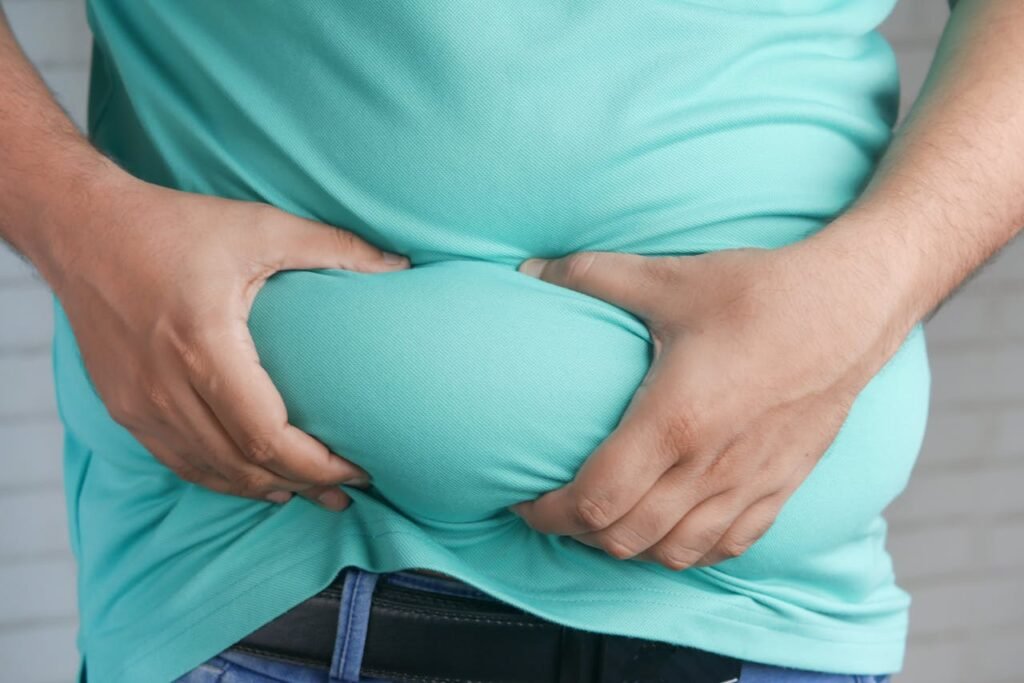Why You’re Not Losing Weight on a Calorie Deficit (And How to Fix It)

Why you’re not losing weight while in a calorie deficit , this is the question that has plagued and frustrated thousands of people trying to lose weight. You’re tracking your calories, you’re skipping the donuts, and you’re following your diet with diligence, but the scale just won’t budge. Sound familiar? You’re not alone.
In this comprehensive article, we’re going to have a look at why you’re probably not losing weight on a calorie deficit and more importantly what to do about it.
We’re going to dig deeper into the reasons “why” you’re not shedding pounds where many articles on weight loss “tiptoe” past, and we’re going to give you some real clear directions for how to shed pounds and make it stick.
So grab some tea, turn off your notifications, and take a minute to read this. It could be the moment you have been waiting for.
What Is A Calorie Deficit? (And Why It Is Important)
Before we can discover why you’re not losing weight on a calorie deficit it will be helpful to clarify what a calorie deficit is in the first place
A calorie deficit occurs when you consume fewer calories than you burn. This is the first law of fat loss. When you do not supply your body adequately with calories from food, it will use stored fat for energy which causes you to lose weight. Sounds easy enough!
But here’s the problem; life is not that easy. There are people who think there is a calorie deficit but in reality they are not. Then there are other people who are in a calorie deficit, but the weight stops coming off. Let us examine what is going on.
Why You are not Losing Weight on a Calorie Deficit: You’ve Hit a Weight Loss Plateau
Why you are not losing weight on a calorie deficit could be in part because your body has undergone a plateau- a point in time in which you’ve made serious diet and exercise changes, but the fat loss has come to a stand still.
When you lose weight, your metabolism decreases. In order to protect you from “starvation”, your body adapts by burning less calories at rest. In this state, your caloric intake is unchanged but you have a progressively smaller calorie deficit , sometimes with no calorie deficit at all.
How to fix it:
- You need to recalculate your caloric needs as you lose weight, every couple of weeks.
- You need to add in more energy expenditure by walking or doing more cardio.
- Try reintroducing some more calories on a few occasions rather than a prolonged period of time (refeeding) to re-establish your metabolism as well.
Why You’re Not Losing Weight on a Caloric Deficit: Poor Sleep Habits

Why you’re not losing weight on a caloric deficit may be due to lack of sleep. Yes, poor sleep will affect fat loss more than you know.
Sleep affects two hormones primarily, ghrelin (makes you hungry) and leptin (informs you when you’re full). When you are sleep-deprived, your ghrelin levels are increased and your leptin levels are decreased.
As a result, you’re hungrier and actually eat more, possibly without even knowing it. It obliterates your caloric deficit.
Even worse, lack of sleep also increases the levels of cortisol (the stress hormone which signals the body to store fat, particularly around the midsection).
How to fix it:
Try to get 7–9 hours of quality sleep every night.
Create a consistent sleeping routine.
Avoid sleeping on an empty stomach.
Why You’re Not Losing Weight on a Calorie Deficit: The Menstrual Cycle Affects Progress
In the luteal phase (after ovulation), progesterone levels rise. This leads to increased hunger, water retention, and a slower metabolism. You might feel bloated and frustrated when the scale goes up—even though you’re still in a calorie deficit.
But don’t worry. This is temporary, and it doesn’t mean fat loss has stopped—it just means your body is reacting to hormonal shifts.
How to fix it:
- Track your cycle so you’re not caught off guard.
- Focus on non-scale victories like energy levels, waist measurements, or how clothes fit.
- Stay consistent and be kind to yourself during this phase.
It Takes Time: Don’t Obsess Over a Specific Number
One major reason why you’re not losing weight on a calorie deficit or think you’re not is impatience.
Weight loss isn’t always linear. You won’t see the same drop every week. Some weeks you’ll lose fat but gain water. Other weeks your body is building muscle and dropping fat at the same time, which makes the scale appear unchanged.
How to fix it:
- Use a monthly average of your weight instead of daily numbers.
- Take progress pictures every 2 weeks.
- Trust the process. Real fat loss takes time, not just effort.
You Are Stressed And It’s Affecting Your Fat Loss

One more invisible barrier to weight loss on a calorie deficit is chronic stress.
Stress leads to the release of cortisol, which can do several negative things:
Promote fat storage (especially around your belly),
Increase cravings for high-calorie junk,
Interfere with sleep and hormones,
And slow your metabolism. Here’s why stress causes people to overeat according to Harvard Health.
You may be eating “clean” but your body will not allow you to lose weight if you are constantly anxious, overworked, and emotionally drained.In fact, learning how celebrities lose weight so fast often reveals secrets about managing stress, hormones, and lifestyle choices that go beyond just diet and exercise.”
What to do:
- Try to practice deep breathing, meditation, or journaling every day.
- Limit your caffeine intake and processed food intake.
- Get outside in nature or do something you enjoy to lower cortisol levels.
You’re Not Doing the Right Exercises
Simply being in a caloric deficit is not always sufficient – you also need to do the right types of exercises to stimulate fat loss.That said, it’s also worth learning how to lose weight without exercise using proven tricks that focus on metabolism, diet, and smart daily habits.
If you only do cardio, you might be burning calories, but you also might be losing muscle as well which slows down your metabolism over time. That will make it more difficult to stay in a caloric deficit and continue to lose weight.
Strength training maintains muscle, helps with body composition, and increases your metabolism.
How to fix:
- Add in 2-3 days a week of weights.
- Add HIIT to your cardio routine to maximize calorie burn.
- Don’t skip the resistance training – it gives shape to your body as you consume fat.
You’re eating way too much in a single sitting even while in a caloric deficit
A caloric deficit only works if your tracking is accurate. If you are filling up too much in a single meal or too many high caloric, high-fat foods, it’s easier than you think to underestimate your total.
Even healthy foods like avocados and nuts and oils can add up when eaten in excess. You can easily wash away multiple doctor’s prescriptions in one meal with several mistaken portions.
And on top of that, it is not uncommon for big meals will also spike your insulin, give you bloating, and confuse your digestive system so much, you will not even feel like you are making progress.
Here are some fixes:
- Use a food scale and genuinely track everything you eat and drink.
- Eat smaller, balanced meals, more frequently throughout the day to spread your caloric intake over the day.
- Stick to a whole food plan, using whole foods that keep you feeling full and with fewer calories such as vegetables, lean proteins, and lots of whole grains.
Conclusion:
The mystery of why you’re not losing weight eating in a calorie deficit is no longer a quandary for you. From plateaus and poor sleep conditions, to stress and hormonal issues, there is a huge range of hidden forces. The good news for you is all of these factors are reversible.
Let’s recap:
Recalculate your calorie needs should you lose weight.
Work to improve your quality of sleep.
Track your menstrual cycle.
Be patient and do not obsess over your weight.
Control your stress.
Exercise correctly, not just more cardio.
Watch your portion sizes even in healthy food.
So don’t give up , modify your approach to fat reduction or fat loss. With patience, good planning and a bit of consistency, the fat will come off.
Have you identified which of the above is holding your weight loss back? Let me know in the comments . I’d love to hear your story.



